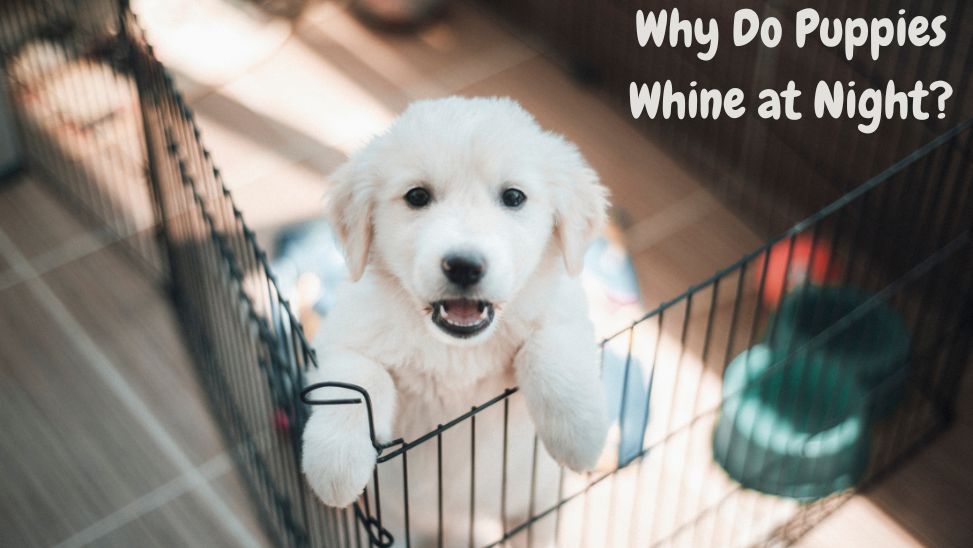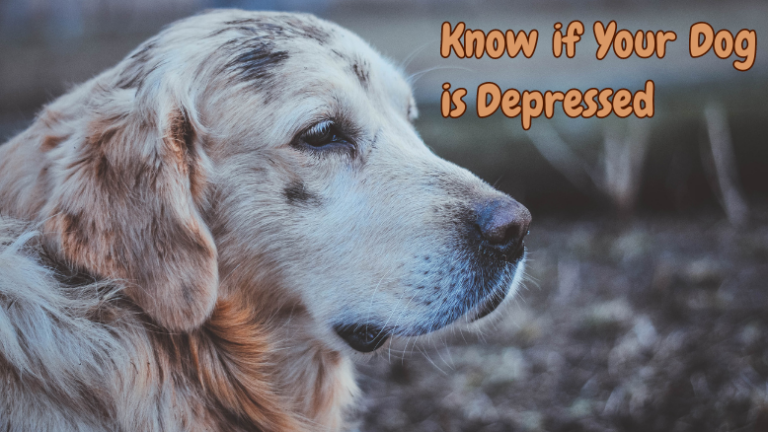
At night, the pitiful cries of the puppies disturb the peace. However, their cries are not just expressions of need; They transmit a spectrum of emotions and tendencies.
Digging deeper into canine behavior uncovers this nocturnal mystery, allowing owners to provide better care and understanding. Through this exploration, deep companionship bonds are created that guarantee restful sleep for both the puppy and its owner.
Why Do Puppies Whine at Night?
Puppies whine at night for many reasons, which are often similar to crying babies. Here are some common reasons:
- Attention Seeking: Puppies, especially when they are small, cry for attention. They may feel lonely or anxious and want someone to comfort them or play with them.
- Hunger: If a puppy is hungry, it will cry to let its owner know that it needs food. This is especially common if they haven’t eaten for a while or if they are used to eating during the day.
- Discomfort: Puppies may cry if they feel uncomfortable, whether because they need to go to the bathroom, are too hot or cold, or are in an uncomfortable position.
- Fear or Anxiety: Puppies may experience fear or anxiety, especially when they are in a new environment or away from their peers for the first time. They may cry because they feel scared or insecure.
- Medical Issues: Sometimes crying can be a sign of an underlying medical problem, such as pain or illness. If your puppy’s crying seems excessive or is accompanied by other symptoms such as lethargy or vomiting, it is important to consult a veterinarian.
- Separation Anxiety: Puppies, like humans, can experience separation anxiety when away from their owners. They may be crying because they feel anxious about being alone.
To address nighttime whining, it is important to ensure that the puppy’s basic needs are met, such as food, water, a comfortable sleeping space, and potty opportunities.
Additionally, providing reassurance and gradually helping the puppy to be alone can help reduce nighttime crying over time.
Is It Normal for Puppies to Whine at Night?
Yes, it is quite normal for puppies to cry at night, especially if they are small or have just been separated from their litter.
Puppies may cry because they are anxious, lonely, or need to go to the bathroom. It is a way to communicate your needs. Over time, as they adjust to their new environment and routine, crying usually decreases.
Providing a comfortable sleeping space, engaging in plenty of activities during the day, and establishing a consistent bedtime routine can help reduce nighttime crying in puppies.
Should I Leave My Puppy to Cry at Night?
In general, it is not recommended to let a puppy cry at night. Puppies, especially when they are young, depend on their owners for comfort, safety and guidance. Ignoring their cries can lead to feelings of insecurity and anxiety, which can then manifest into behavioral problems.
Puppies crying at night is usually a sign of distress or anxiety. They may feel scared, lonely, or simply in need of attention.
By responding to their cries with comfort and reassurance, you not only meet their immediate needs but also build a strong bond based on trust and security.
This helps them feel safe in their new environment and establishes a positive foundation for their growth and well-being.
Also Read :
Can We Leave Newborn Puppies Alone with Mom?
Should Mother Dog Sleep with Puppies?
How Long Should I Leave a Puppy to Cry at Night?
It is generally recommended to limit the time a puppy cries at night to about 15-30 minutes. Leaving a puppy to cry for too long can be distressing for both the puppy and the owner, and it is important to address the root causes of the crying.
Puppies may cry at night for various reasons, such as being separated from their companion, feeling anxious in a new environment, needing to relieve themselves, or simply wanting attention.
However, it is important to strike a balance between comforting the puppy and encouraging her independence. Gradually increasing the amount of time before a puppy cries can help him calm down and adjust to her new surroundings.
A consultation with a veterinarian or professional dog trainer can provide personalized advice based on your pup’s specific needs and temperament.
What to Do When Puppies Whine at Night?
When puppies cry at night, it is important to assess their needs and comfort. At first, make sure he has access to water, a comfortable place to sleep, and has recently gone to the bathroom. Once these basics have been covered, consider whether they may be feeling anxious or lonely.
Puppies may crawl at night due to separation anxiety or a need for reassurance. Giving them a warm, comfortable sleeping area, such as a crate with soft blankets, can help them feel secure.
Additionally, placing a piece of clothing with your scent near their sleeping area can provide comfort. Establishing a bedtime routine is important to help them feel safe and relaxed before bed.
Avoid shaming them for crying, as this can reinforce the behavior. Instead, offer reassurance from a distance and gradually extend the time between comfort visits to encourage independence and self-soothing.
With patience and consistency, most puppies can learn to sleep through the night without excessive crying.
Conclusion
In conclusion, understanding why puppies cry at night requires a holistic approach that addresses both natural and behavioral causes.
By meeting their biological needs, creating a comfortable sleeping environment, and implementing consistent training techniques, pet owners can effectively control nighttime crying and promote good sleep for both puppies and themselves.
Patience, consistency, and understanding are the keys to tackling this common challenge of having a puppy and ultimately strengthening the bond between pet and owner.
With the right approach and mindset, puppies crying during the night can be successfully controlled, leading to happy and healthy relationships between humans and their furry companions.





